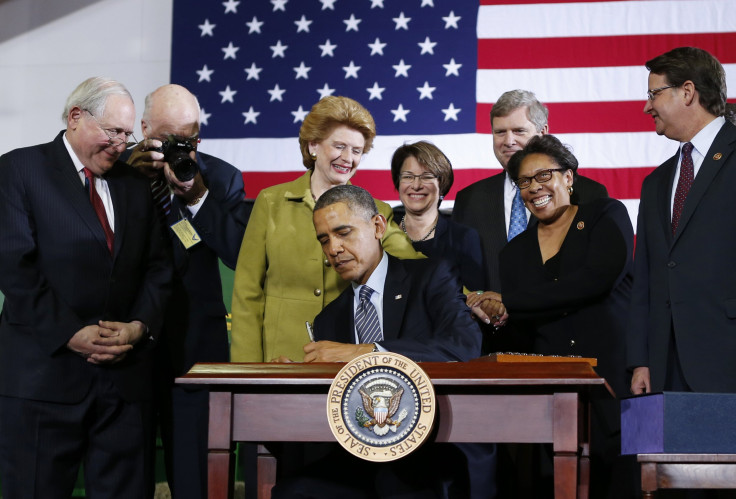Welfare In America: Most Low-Wage, Full-Time Workers Use Food Stamps, Housing Assistance, Analysis Shows

Welfare queens, lazy government leeches and "scrubs" are but a few of the insults that Americans have leveled at their fellow citizens who rely on public assistance programs to support their families or make it through a rough patch.
But the reality is that tens of millions of Americans with full-time jobs are working for low hourly wages and cannot afford to cover the monthly basics, according to David Cooper, a poverty and minimum wage analyst at the Economic Policy Institute in Washington.
In a government data analysis released Tuesday by the liberal-leaning think tank, Cooper said there are 41.2 million working people, or nearly 30 percent of the workforce, receiving public assistance such as food stamps, housing subsidies and cash assistance to make ends meet. Nearly half of those workers, 19.3 million people, had full-time jobs and most were earning less than $12.16 per hour in wages, Cooper wrote in his analysis.
“When corporations pay wages so low that working people must rely on public assistance, taxpayers are effectively subsidizing these companies to make up the difference between what workers make and what they need to support themselves and their families,” he wrote.
As CEO compensation soars and U.S. corporations continue to see high profits, the simplest way to address the disparity for low-paid workers is to raise the minimum wage, Cooper added. The current federal minimum wage is $7.25 per hour for nonexempt employees, and has been there since 2009.
State minimum wages vary and are typically based on the local cost of living. Still, the national poverty rate is 15.6 percent, according to the U.S. Census Bureau, and wage growth has lagged behind federal expectations, even though the country has halved its unemployment rate since the Great Recession (officially 2007-09).
Raising wages helps “ensure that businesses are doing their fair share to provide working families with the means to a decent life,” Cooper wrote. Better pay would also free up the billions of dollars that governments spend on anti-poverty programs for other economy-boosting investments, he added.
© Copyright IBTimes 2024. All rights reserved.






















